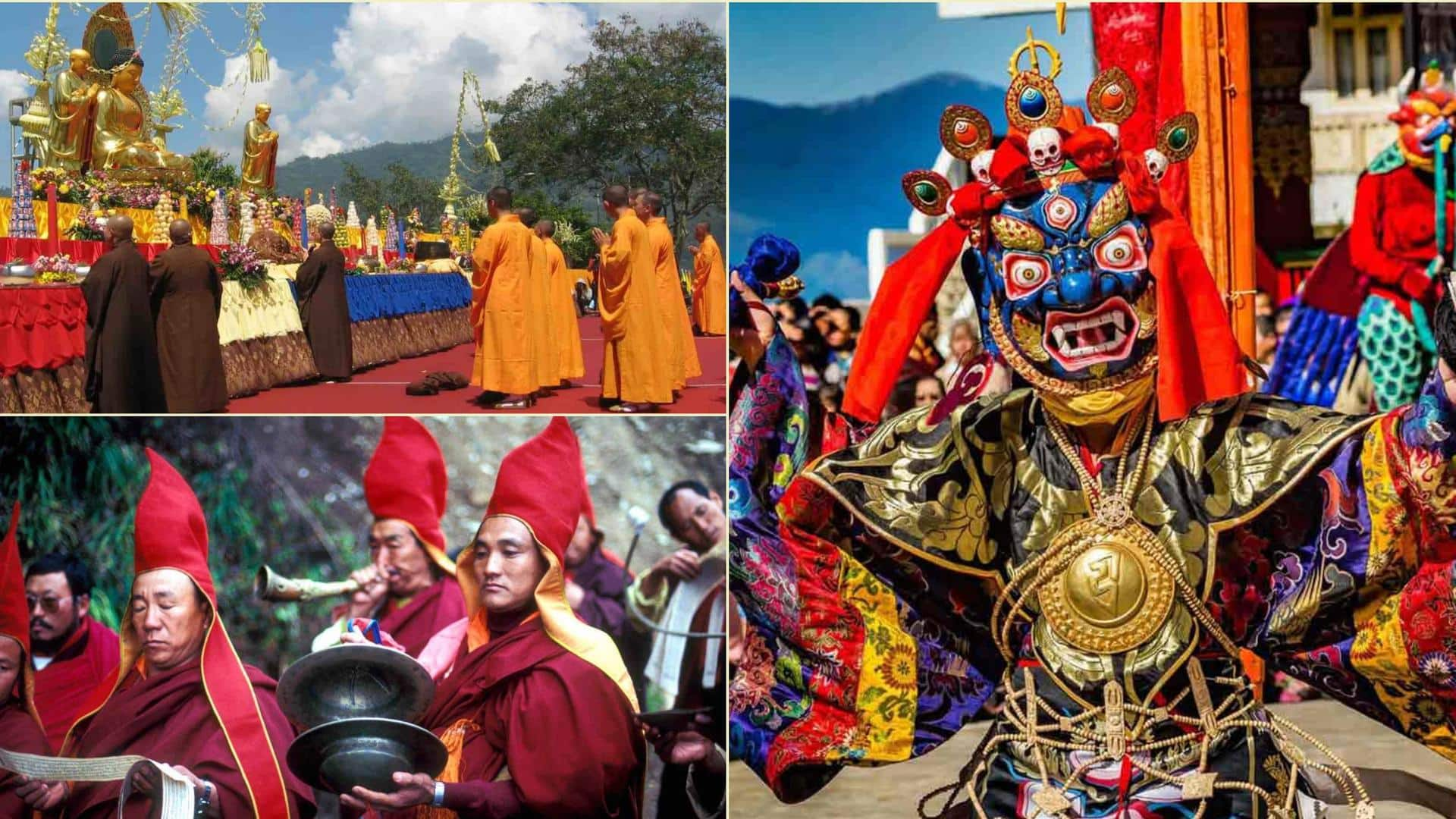
Drukpa Tsheshi: History, significance, and celebrations
What's the story
Every year on July 21, Drukpa Tsheshi is celebrated to mark Lord Gautam Buddha's first preaching of the Four Noble Truths to his first five disciples. Buddhists in India (mostly in Sikkim), Bhutan, and Tibet observe this festival by reciting chants and holding a yak race. It falls on the fourth day of the sixth lunar year as per the Tibetan calendar.
History
History: Buddha shared the Four Noble Truths 2,500 years ago
On this day, about 2,500 years ago, Lord Buddha gave his first sermon in a deer park in Sarnath. It's believed that he shared the Four Noble Truths that offer salvation. These are the truth of suffering, the truth of the cause of suffering, the truth of the end of suffering, and the truth of the path that leads to the end of suffering.
Significance
Significance: It strengthens the overview of Buddhist beliefs and practices
This festival, which has been an important part of the Buddhist culture for centuries, offers a deeper insight into the beliefs, preachings, teachings, and practices of Buddhism. Buddhists believe in meditation, surrender, and introspection, which are known to foster an understanding of the Four Noble Truths, attain a perspective, and develop wisdom. With that, it is celebrated with a lot of fervor and devotion.
Traditions
Traditions: People wear traditional garbs and visit monasteries
To commemorate this holy festival, people wear traditional clothes and attend prayers at monasteries. This time around, tourism in Sikkim, Tibet, and Bhutan is usually at its peak as several devotees from around the world flock to these destinations to participate in grand celebrations. Besides religious affairs, people also organize various cultural fests and yak races with much pomp and show.
Celebrations
Celebrations: Devotees cook delicacies and indulge more in spirituality
Divided by countries, united by traditions! During this sacred festival, Buddhists from around the world cook and indulge in scrumptious foods to get into its spirits. From noodles and dumplings to thupkas and Sinki soup, they prepare and serve them all. Additionally, they also participate in meditation and soak themselves in spirituality by attending sessions on Lord Buddha.